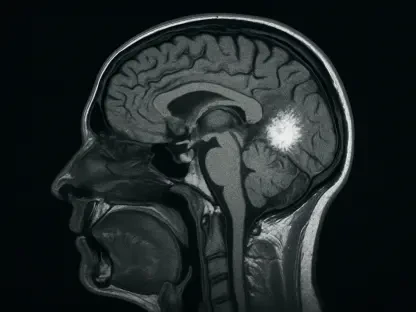In a striking turn of events that has captured the attention of healthcare communities across Rhode Island, Butler Hospital, a key psychiatric facility on Providence’s East Side, finds itself at the center of a heated labor dispute that has significantly disrupted mental health services. Operated by Care New England, the state’s second-largest health system, the hospital has been grappling with a strike involving nearly 700 unionized workers represented by SEIU 1199 New England. Since mid-May, these workers have been off the job, demanding better wages and improved working conditions, leaving the hospital struggling to maintain its operations. The conflict has not only highlighted deep-seated issues of wage disparity but also raised critical questions about the sustainability of psychiatric care in a financially constrained environment. As negotiations loom on the horizon, the stakes are high for both the striking workers and the patients who rely on the hospital’s essential services.
Core Issues Fueling the Conflict
The heart of the dispute at Butler Hospital lies in a stark disagreement over wages, particularly for the lowest-paid staff members such as maintenance and dietary workers. Union representatives have been vocal about the need for a living wage, pointing out that many employees, like 67-year-old environmental services technician Robert Neves earning around $17 per hour after 14 years of service, struggle to make ends meet. The union rejected a hospital offer from mid-summer, described as a “revised last, best, and final” proposal, arguing it failed to address the financial hardships faced by these essential workers. Spokesperson Amelia Abromaitis has emphasized that fair compensation is non-negotiable, reflecting a broader sentiment among the striking workforce that their collective efforts to keep the hospital running deserve recognition through equitable pay. This standoff has created palpable tension, with workers feeling undervalued despite their critical role in maintaining the facility’s day-to-day operations.
From the hospital’s perspective, management insists that their current compensation package is competitive, with the lowest starting wage under the union contract set at $18.03 per hour—20% above Rhode Island’s minimum wage—and slated for annual increases. Spokesman Mike Raia has highlighted that the total value of benefits and wages for workers like Neves could reach nearly $75,000 under the proposed terms. However, financial constraints remain a significant barrier, as President Mary E. Marran notes that 70% of the hospital’s funding comes from Medicare and Medicaid reimbursements, which offer lower rates compared to private insurers. With potential federal policy changes threatening further Medicaid cuts, the hospital faces a delicate balancing act between meeting union demands and ensuring fiscal viability. This clash of priorities underscores the systemic challenges in healthcare funding that often pit worker advocacy against operational realities.
Operational Impacts and Patient Care Challenges
The strike’s repercussions on Butler Hospital’s operations have been profound, with a reported 35% reduction in capacity, resulting in the closure of 70 out of 197 beds. This downsizing has placed immense pressure on psychiatric services in Rhode Island, where access to mental health care is already limited. To cope with the staffing shortage, the hospital has incurred substantial costs by hiring temporary replacement workers from out of state, a measure that has further strained its budget. Additionally, since the onset of the strike, health benefits for striking workers have been cut off, and advertisements for permanent replacements have surfaced, escalating tensions. These actions have sparked legal debates over the nature of the strike under federal law, which permits permanent replacements for economic strikes but not for those related to unfair labor practices, adding another layer of complexity to the ongoing conflict.
Beyond the immediate operational hurdles, the broader implications for patient care cannot be overlooked. The reduction in available beds means longer wait times and potential delays in critical psychiatric treatment for vulnerable populations. The union has filed a complaint with the National Labor Relations Board, alleging bad faith bargaining by hospital management, a claim that remains unresolved and contributes to the uncertainty surrounding the strike’s outcome. Meanwhile, job openings at Butler Hospital have surged from 100 to 375 since the labor action began, signaling a deepening staffing crisis. This situation not only jeopardizes the quality of care but also highlights the urgent need for a resolution that addresses both worker concerns and the hospital’s capacity to serve the community effectively, ensuring that mental health services remain accessible during this turbulent period.
Negotiation Prospects and Broader Implications
As negotiations are set to resume with the assistance of a federal mediator, there is a glimmer of hope for progress in resolving the deadlock at Butler Hospital. This upcoming session marks the first formal bargaining meeting since the union rejected the hospital’s mid-summer offer, although smaller, informal discussions have taken place in the interim. Registered nurse Dawn Williams has expressed cautious optimism about the talks but remains steadfast in the union’s demand for a living wage for all members before returning to work. The involvement of a larger group in these discussions suggests a potential shift toward compromise, yet the entrenched positions on both sides indicate that reaching an agreement will require significant concessions. The outcome of these talks could set a precedent for how labor disputes in healthcare are navigated, especially in facilities reliant on public funding.
Looking at the bigger picture, the situation at Butler Hospital reflects a widespread struggle within the healthcare sector, where workers’ push for fair compensation often collides with institutional financial pressures. The union’s focus on immediate wage increases for the lowest-paid staff contrasts sharply with management’s emphasis on existing pay scales and the limitations imposed by reimbursement rates. This conflict serves as a microcosm of systemic issues in healthcare labor relations, where economic realities and employee advocacy must be reconciled to sustain critical services. The resolution of this strike could influence future labor negotiations across the region, highlighting the importance of balancing worker needs with operational sustainability in an industry already strained by policy uncertainties and funding challenges.
Path Forward After the Standoff
Reflecting on the events that unfolded, the labor dispute at Butler Hospital revealed deep-rooted challenges in balancing fair worker compensation with the financial realities of a publicly funded healthcare institution. The strike, which saw hundreds of workers walk off the job, left an indelible mark on psychiatric care in Rhode Island, with reduced bed capacity and strained resources becoming a stark reality. Negotiations, mediated by federal officials, offered a critical opportunity for dialogue, even as both sides held firm to their positions. Moving forward, the lessons learned underscored the necessity of proactive communication and innovative funding solutions to prevent similar disruptions. Stakeholders were urged to explore sustainable wage structures and advocate for policy changes that bolster Medicaid reimbursements, ensuring that essential mental health services could withstand future labor conflicts without compromising patient care.









